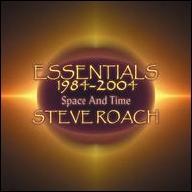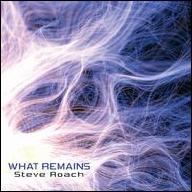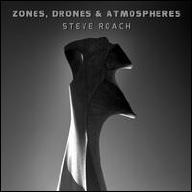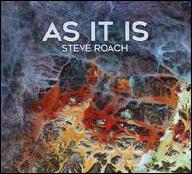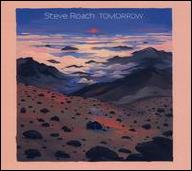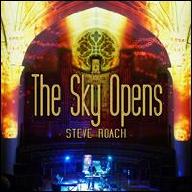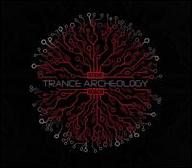Born in California in 1955, Roach -- inspired by the music of Tangerine Dream, Klaus Schulze, and Vangelis -- taught himself to play synthesizer at the age of 20. Debuting in 1982 with the album Now, his early work was quite reminiscent of his inspirations, but with 1984's Structures from Silence, his music began taking enormous strides. The album's expansive and mysterious atmosphere was partly inspired by the natural beauty of the southwestern U.S. Subsequent works, including 1986's three-volume Quiet Music series, honed Roach's approach, his dense, swirling textures and hypnotic rhythms akin to environmental sound sculptures.
In 1988, inspired by the Peter Weir film The Last Wave, Roach journeyed to the Australian outback, with field recordings of aboriginal life inspiring his acknowledged masterpiece, the double-album Dreamtime Return. A year later, he teamed with percussionist Michael Shrieve and guitarist David Torn for The Leaving Time, an experiment in ambient jazz. After relocating to the desert outskirts of Tucson, Arizona, Roach established his own recording studio, Timeroom. In the years to follow, he grew increasingly prolific, creating both as a solo artist and in tandem with acts including Robert Rich, Michael Stearns, Jorge Reyes, and Kevin Braheny; in all, he recorded close to two-dozen major works in the '90s alone, all of them located at different points on the space-time continuum separating modern technology and primitive music. These range from the tribal ambient of Robert Rich collaborations Strata (1990) and Soma (1992) to darker albums like 1996's The Magnificent Void, plus many collaborations with dark ambient artist Vidna Obmana.
Throughout the remainder of the 2000s, Roach remained extremely prolific. His release schedule included several Projekt titles, including 2002's Trance Spirits (with Jeffrey Fayman, Robert Fripp, and Momodou Kah) and the quadruple-disc Mystic Chords Sacred Spaces (2003). He also collaborated extensively with fellow Projekt artists such as drummer Byron Metcalf and Erik Wøllo, and released several albums of minimalist drone as part of the Immersion series. He also self-released several titles on his own through Timeroom Editions. Over the next decade, Roach would show no signs of slowing down as he continued with a nonstop slew of new material under his own name, as well as collaborations and soundtrack work. Though new volumes of work appeared at a rate of more than three albums per year, standouts included more collaborations with Byron Metcalf, 2013's Future Flows, 2014's disparate releases of arid road trip music on The Desert Collection, and ambient explorations of mortality and humanity on The Delicate Forever.
Roach began constructing an extensive analog modular synthesizer system in 2014, and in 2015 the album Skeleton Keys was composed entirely using this setup. In 2016, he released two full-lengths with Robert Logan (the more rhythmic Biosonic and the serene drone album Second Nature), as well as solo efforts This Place to Be and Shadow of Time. The ever-prolific composer remained busy throughout 2017 with releases like Painting in the Dark, Fade to Gray, Spiral Revelation, and The Passing. In August of that year, Roach returned to the Projekt label with the long-form ambient work Long Thoughts. The same label released 2018's Berlin School-styled Molecules of Motion, while Roach celebrated the 30th anniversary of Dreamtime Return with the self-released live recording Return to the Dreamtime. This was concurrently released with Electron Birth, containing one live performance and one studio creation. A gaseous ambient album titled Mercurius appeared in November of 2018. In 2019, Roach released collaborations with Radiant Mind (Heliosphere) and Sam Rosenthal with Nick Shadow (The Gesture of History), in addition to solo effort Bloom Ascension. The Sky Opens, recorded live at the First United Methodist Church in Pasadena, was released in 2020. ~ Jason Ankeny & Paul Simpson, Rovi


